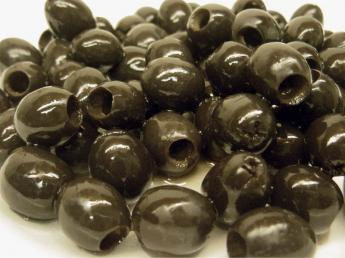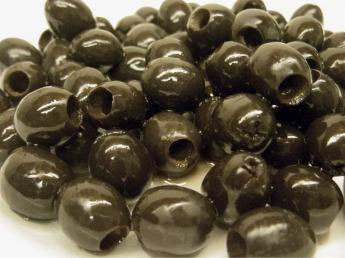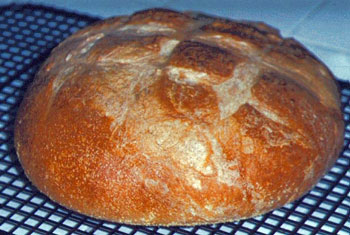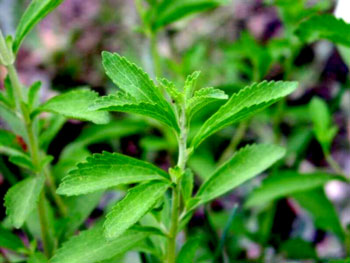Olive Oil for Health
The hardy olive tree is an ancient giver of life. Fossilized leaves from a stand of Greek olive trees date back to 37,000 B.C., and amazingly enough, that particular stand still exists today. Individual trees can live from one hundred to thousands of years–the olive tree from Plato’s back yard lives on, but no longer produces olives. Next to salt, olive oil is the essence of civilization. The cultures of the ancient Egyptians, Hebrews, Greeks and Romans all revered the olive tree for its fruit with a multitude of uses.
Olive oil has been used to moisturize skin and to fuel lamps, to heal and to cook, and it has been so important that it has even been used as a form of currency.
Olive oil is more than an artifact of the past. There are approximately 800 million olive trees in the world, in places as distant from each other as Angola, China and California. However, most olive trees circle the Mediterranean, where people have based their diets on the olive for 6,000 years. In Greece, every man, woman and child consumes an average of five gallons of olive oil a year!
Nowadays, olive oil is being rediscovered by Americans as a delicious and nutritious addition to their diets. Science has finally noticed what others have instinctively known for millennia: Olive oil is not just tasty; it’s actually good for you!
Olive oil is very high in the antioxidants vitamin A and vitamin E, which neutralize cancer-causing free radicals in our bodies. It is monounsaturated, therefore it lowers the “bad” LDL cholesterol without reducing the “good” HDL cholesterol. This results in improved circulation, lowered blood pressure and less risk for heart disease. Recent research also indicates that olive oil may be especially effective in preventing both breast cancer and osteoporosis.
Its high concentration of oleic acid not only keeps our arteries supple, it is also partly responsible for olive oil’s popularity–it is a fairly stable oil with a high smoking point. This means it is suitable for all cooking except frying, and it stores for a year to a year and a half in cool, dark storage conditions.
Interestingly, oleic acid is in a medicine used to fight a rare degenerative disease known as ALD (Adrenoleukodystrophy), which occurs when a build-up of very long-chain fatty acids (C22 to C28) destroys the white matter (myelin) in the brain. Made with twenty percent erucic acid and eighty percent oleic acid, the medicine is called “Lorenzo’s Oil”, named after a boy with this condition, and was popularized by a movie of the same name. It is no relation to our new line of olive oil, “Lorenzo’s Oil Tehama Gold.”
When choosing an olive oil, it is imperative that one buys only “extra virgin” olive oil, rather than “virgin” or “pure” olive oil. Extra virgin is the oil from the first pressing; it uses top grade olives, with less than one percent acidity, and has the highest nutritional value and the best taste. It is the only oil with which the consumer can feel safe in knowing that it is truly cold pressed. Virgin olive oil is also mechanically pressed, but with olives that may not be top grade and are from the second or third pressing. “Pure” olive oil is a marketing term; this oil comes from the third or fourth pressing, and has been refined in a variety of processes, all using extreme heat and chemicals to extract the oil from the remaining pulp.
There is no standardization of terms, so the consumer is confounded by such phrases as “cold pressed”, “first pressed”, “expelled pressed” and “mechanically pressed.” As the goal is to have as little heat applied as possible, one would think that cold pressed would be best. However, some cold pressed oils could be the third or fourth pressing, refined with heat and chemicals, which strip olive oil of its nutrients and rich, fruity taste. Avoid fraud by sticking to extra virgin olive oil, which is expressed from only one mechanical pressing, and is not refined.


Olive oils are as diverse as wines; there are 700 cultivated varieties of olives. The oils derived from them can be anywhere from mellow yellow in color, to jade green. The taste can be peppery, sweet and buttery, nutty, grassy, or it can taste like green apples. An olive oil can be filtered, resulting in a clearer product, or it can be unfiltered, resulting in sedimentation and juicy bits of fruit. Some olive oil aficionados may have as many as a dozen oils from all over the world so they can savor the different flavors.
As olive oil is such an important component to a healthful diet, we at The Grain and Salt Society wanted to offer at least one brand to our customers. We have chosen Lorenzo’s Oil Tehama Gold, which we feel is an excellent product.
There are many qualities that distinguish this oil from some of the others. It is grown organically in California, and we all know that organically grown is a must. Rather than the younger green olives, the mature fruits are harvested, which results in a creamy, buttery flavored extra virgin olive oil. In addition, the manufacturing process uses a dual-phase and tri-phase decanter for extracting olive oil, which does not add warm water to extract the oil. This is key, because heat alters the chemical makeup of olive oil, and severely depletes its vitamins.
So do your heart and taste buds a favor and add olive oil to your diet. Olive oil can be used in salads, stir-fries and sautes. It is delicious on bread, in place of butter, and brushed on vegetables, fish or poultry before grilling. Do not deep fry with olive oil because temperatures in excess of 350 degrees begin to break down the oil.
Remember to always store olive oil in a cool, dark cabinet, not on the counter, or next to a stove, as both heat and light alter oil’s nutritional value.
By Gloria Good
For more information on healthyy oils, see the following articles: “Change Your Oil, Change Your Life” in Spring 1999 “Ghee: an Ancient Food for a Modern Era” in Spring 1999 “Going Co-Co for Coconut Butter” in Winter 2000
Source : curezone.com






